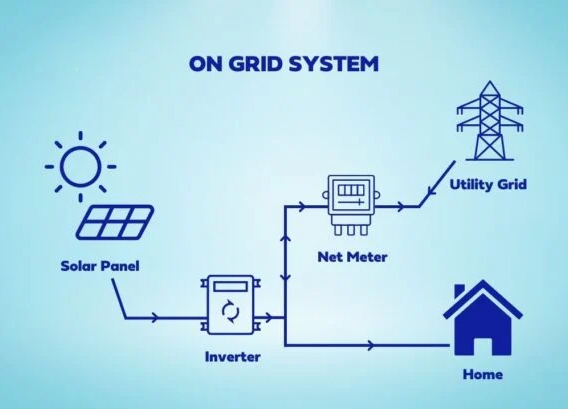On-grid Solar systems, also known as grid-tied systems, are the most common type of Solar installations. They work together with the utility grid, offering several advantages for homeowners and businesses:
Benefits of On-Grid Solar Systems
Simple set-up
No batteries needed, reducing upfront costs and complexity.
Reliable power
Access to the grid ensures a steady supply of electricity even when sunlight is limited.
Automatic backup
If your Solar system can't meet your needs, the grid seamlessly fills the gap.
Financial incentives
Net metering allows you to sell excess Solar energy back to the grid, offsetting your bills.
Low maintenance
On-grid systems require minimal maintenance, making them hassle-free.
Increased property value
Homes with Solar panels often sell for higher prices.

- Electricity Meter : Tracks energy usage and production.
- Solar Panels : Capture sunlight and convert it into electricity.
- Inverter : Converts DC electricity from panels to AC electricity compatible with the grid.
- Utility Grid : Provides backup power and buys excess Solar energy for net metering.

Is an on-grid system right for you?
On-grid Solar is ideal for most users who value simplicity, reliability, and financial benefits. However, if you live in a remote area with unreliable grid access or want complete energy independence, off-grid Solar with battery storage might be a better option.
